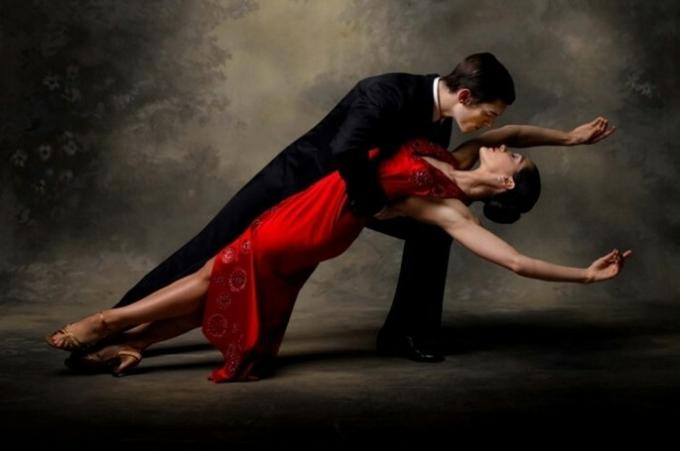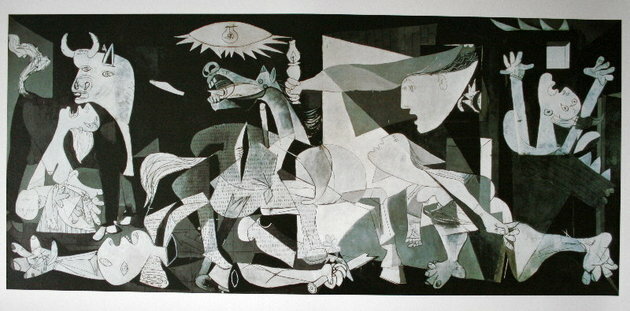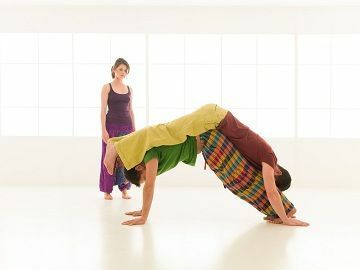Tango is a genre of traditional Argentine dance and music. It is considered an important cultural symbol of this country and has an enormous emotional and dramatic charge.
Dance is done in pairs and to perform it requires skill and expressiveness. That's because the choreographies have a certain degree of complexity and convey sensuality, passion and sadness.
Also, for a presentation to be successful, the couple must have rapport and connection.
In 2009, the style was elevated to the category of Oral and Intangible Heritage of Humanity by UNESCO.

Origin of tango
Tango originated in the late nineteenth century on the banks of the Rio de la Plata, in Buenos Aires, Argentina, and Montevideo, Uruguay.
It is not known for sure, but it is speculated that the musical style is due to the habanera and of the milonga, which are strands of Cuban music.
Thus, tango was a present expression among the suburban population and manifested itself mainly in houses of prostitution, bars and cafes. The musical instruments used were the guitar, flute and violin.
Another important instrument in tango is the bandoneon, little accordion. It was created by the musician Heinrich Band and brought to the Rio da Prata region by German immigrants in the early 20th century, gradually being incorporated into the local culture.
In the beginning, the dance was done by two men and they didn't look at each other. Afterwards, it was also played by women, usually prostitutes.
Only in 1910, with the spread of this art, tango started to be accepted by the bourgeoisie and from then on, won the salons.
Golden Stage and important tango artists
After tango began to be seen with new eyes, some glorious phases of this artistic aspect emerged.
The first was in the 1920s, when some Argentine and Uruguayan personalities began to devote themselves to spreading tango.
Writers have even focused their efforts on valuing this art, such as José Gonzalez Castillo and Fernán Silva Valdez.
Also from that time are important singers, such as:
- Carlos Gardel
- Ignacio Corsini
- Agustin Magaldi
- Rosita Quiroga
- Azucena Maizani
- Enrique Santos Discépolo
Later, in the 40's, there was another golden moment for tango, when more successful names emerged, such as:
- Hannibal Troilo
- Astor Piazzolla
- Armando Pontier
- Francisco Canaro
- Carlos di Sarli
- Juan D'Arienzo
- Osvaldo Pugliese
Tango Characteristics
Some characteristics of this cultural manifestation are:
- Expressiveness;
- Large dramatic load;
- Valuing feelings such as passion, sadness and sensuality;
- Ability to improvise;
- Complex choreographies.
Tango Video
The film Come Dance, from 2006, tells the story of a dance teacher who shows the charm of tango to his students. Watch a scene from the movie.
poetry about tango
Brazilian poet Manuel Bandeira wrote the poem Pneumothorax, published in 1930 in the book Debauchery.
In this text, he cites the Argentine tango as a kind of "dramatic and poetic resolution" in the face of a serious health problem.
Fever, hemoptysis, dyspnea and night sweats.
A lifetime that could have been and wasn't.
Cough, cough, cough.
He sent for the doctor:
"Say thirty-three."
- Thirty three... thirty three... thirty three.. .
- Breathe.
...
"You have an excavation in your left lung and an infiltrated right lung."
"So, doctor, it's not possible to try pneumothorax?"
- No. The only thing to do is play an Argentine tango.
We have more texts for you:
- dance history
- folk dances
- Flamenco



